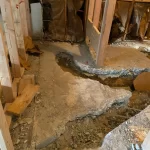The Affordable Housing Tax Credit is a powerful tool in the development of affordable housing across the United States. It incentivizes private developers to invest in the creation of affordable housing units for low-income individuals and families. By understanding how this tax credit system works, both developers and communities can benefit from increased access to quality housing. In this blog, we will explore how the affordable housing tax credit supports lihtc developers, and the communities they serve, and why it is a critical element in addressing housing affordability challenges.
What is the Affordable Housing Tax Credit?
The affordable housing tax credit, also known as the Low-Income Housing Tax Credit (LIHTC), was established under the Tax Reform Act of 1986. This program provides federal tax incentives to private developers who build or rehabilitate affordable housing units. These units must be made available to low-income tenants, ensuring that they are offered at affordable rental rates.
For developers, the LIHTC benefits include a dollar-for-dollar reduction in federal tax liability, which helps offset the costs of developing affordable housing. This can significantly lower financing costs, making affordable housing projects more viable and attractive to private investors.
How Do Affordable Housing Developers Benefit from LIHTC?
Affordable housing developers play a crucial role in creating housing for low-income families. By utilizing the affordable housing tax credit, these developers can reduce the financial burden of construction costs. Here’s how they benefit:
- Tax Credit Benefits: Developers receive a substantial tax break over a 10-year period for each qualified affordable housing unit they build or renovate. This reduces the overall cost of the project, making it financially feasible to create affordable rental properties.
- Attracting Investors: The LIHTC benefits also attract private investors who are looking to earn a return on their investment through tax savings. These investors can partner with developers, ensuring the success of affordable housing projects without requiring substantial upfront capital from developers.
- Increased Project Feasibility: With the support of tax credit benefits, developers can tackle larger and more ambitious projects, knowing that they can rely on government incentives to offset some of the financial risks involved in creating affordable housing.
How the Affordable Housing Tax Credit Supports Communities
The affordable housing tax credit is a vital tool for communities facing a shortage of affordable housing. It supports the development of safe, decent, and affordable homes for low-income families. Here’s how communities benefit:
- More Affordable Housing Options: The affordable housing tax credit directly leads to more affordable housing being built. This increases the availability of rental units for individuals and families who may otherwise struggle to find decent housing within their budget.
- Economic Revitalization: Many LIHTC benefits come from rehabilitating older properties, which can help revitalize neighborhoods, stimulate local economies, and create jobs. This helps improve the quality of life for residents while boosting the local economy.
- Reduced Housing Insecurity: By providing more affordable rental units, the affordable housing tax credit helps reduce housing insecurity, giving families a stable home environment in which they can thrive.
Maximizing the Impact of the Affordable Housing Tax Credit
The affordable housing tax credit is a noteworthy element in the development of affordable housing in the U.S. It helps affordable housing developers offset costs and attract investment while providing communities with much-needed housing options. Understanding how the LIHTC benefits work can help developers maximize the potential of these incentives, contributing to a more affordable housing market.
If you’re a developer looking to take advantage of the affordable housing tax credit and the LIHTC benefits, contact us today to learn more about how we can help you navigate the process and build a better future for our communities.










